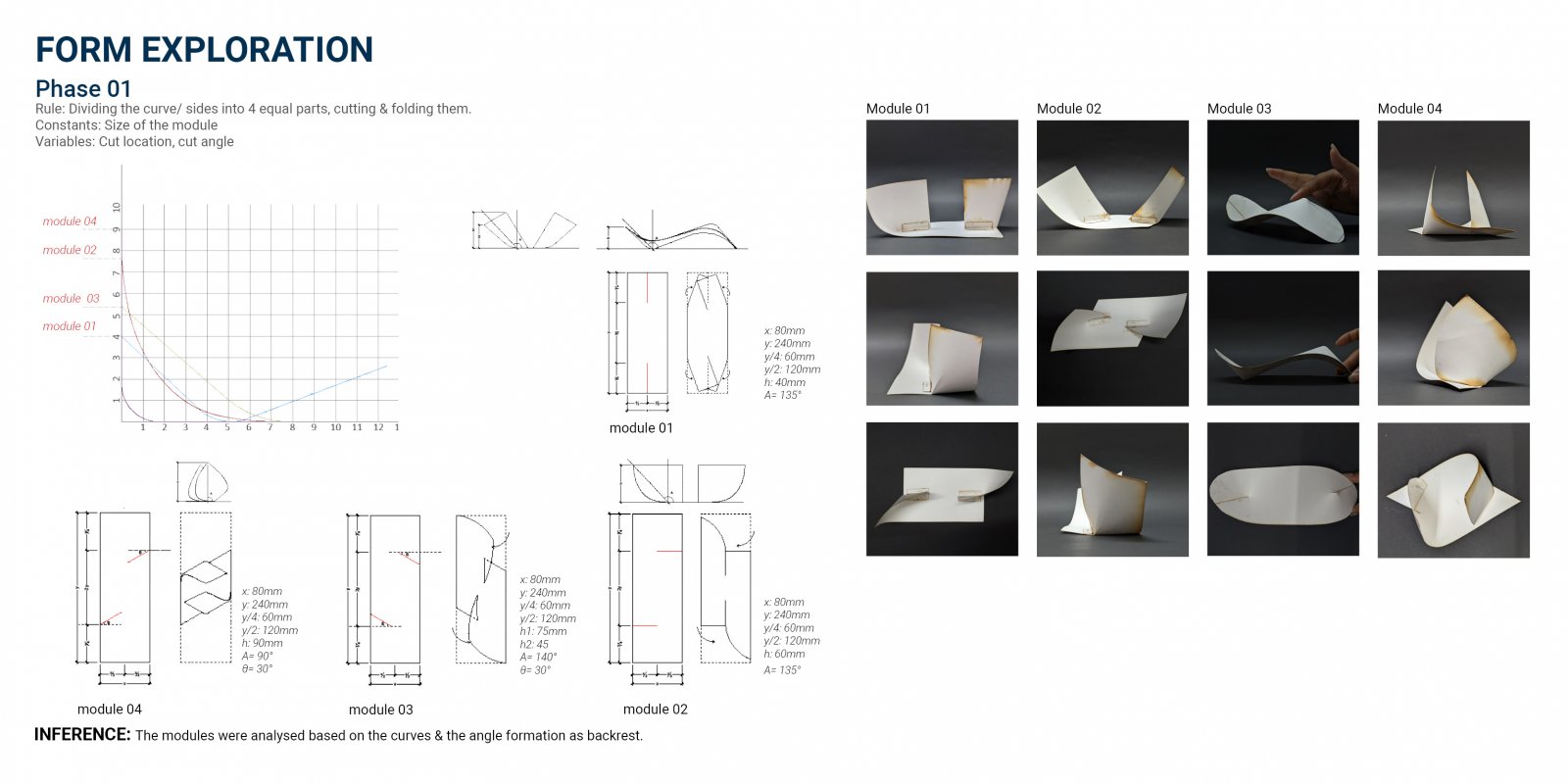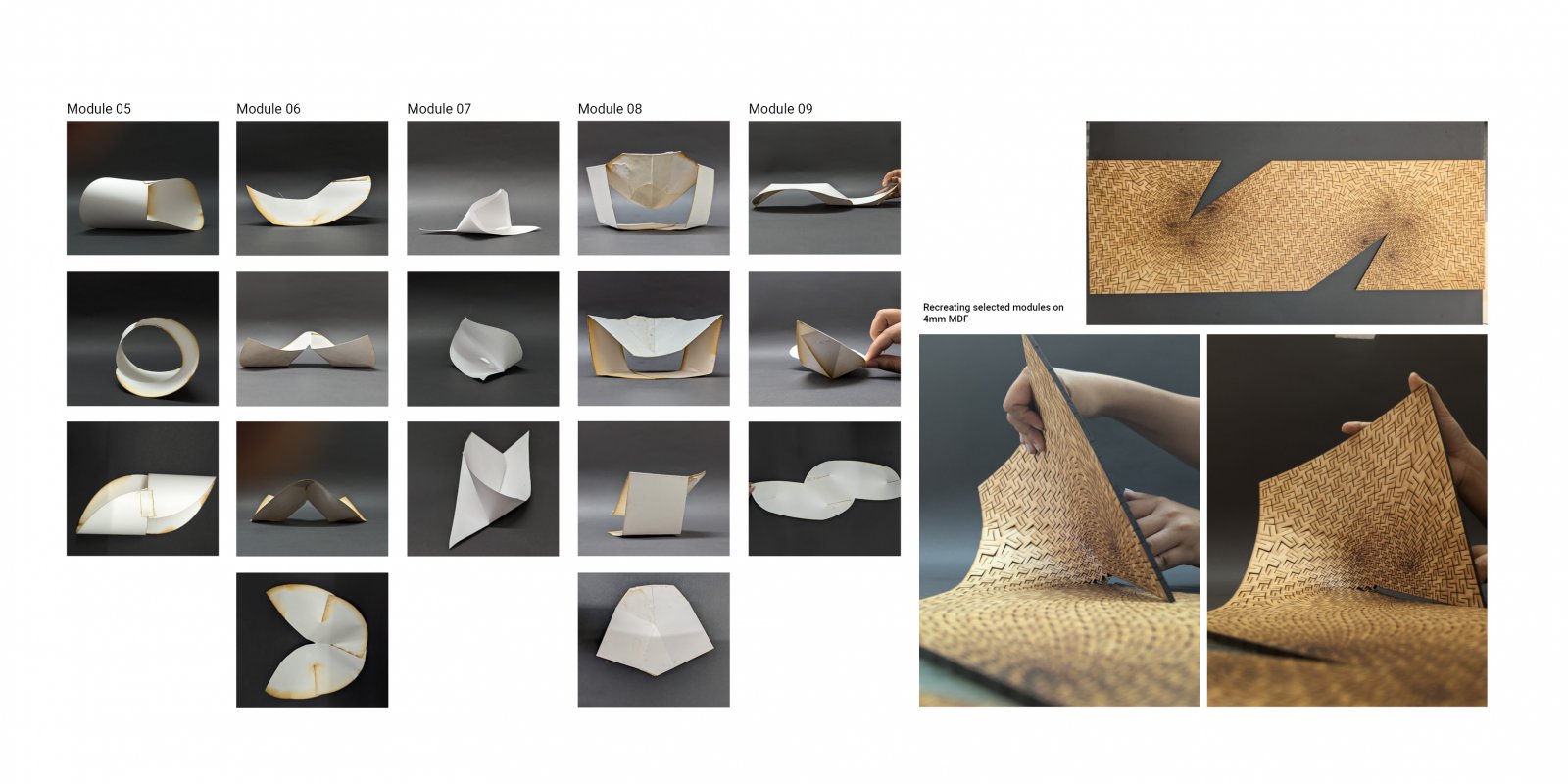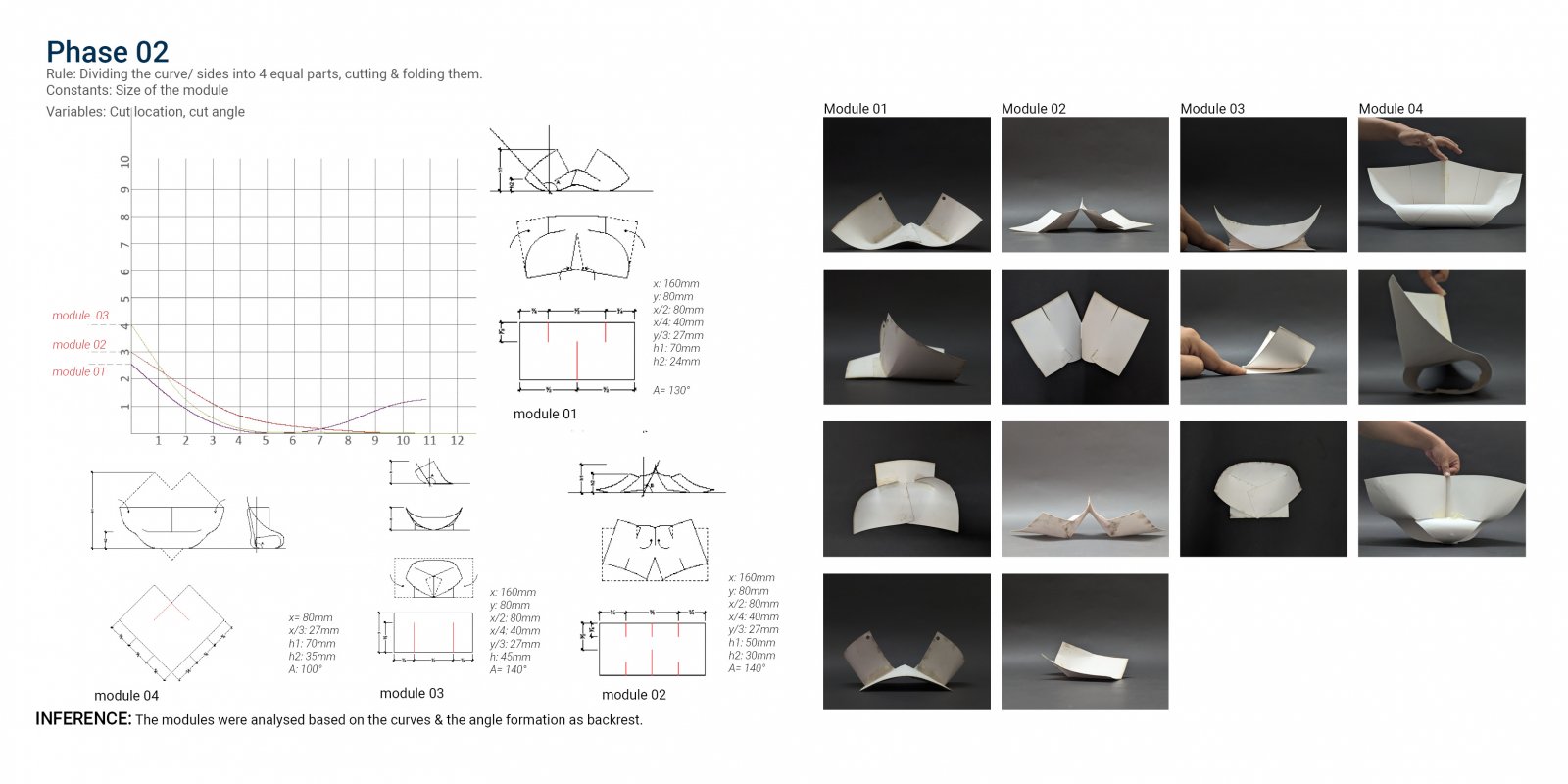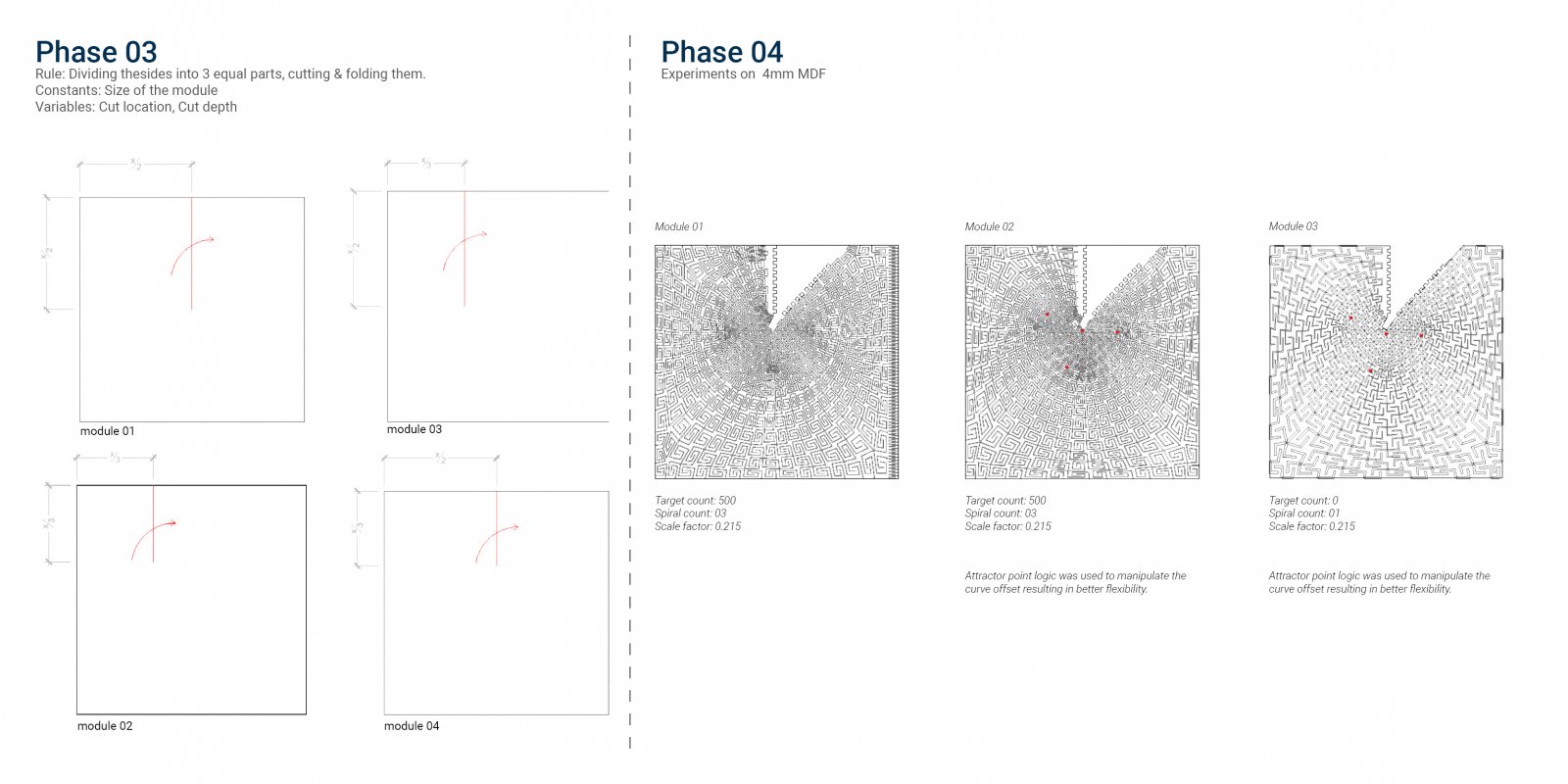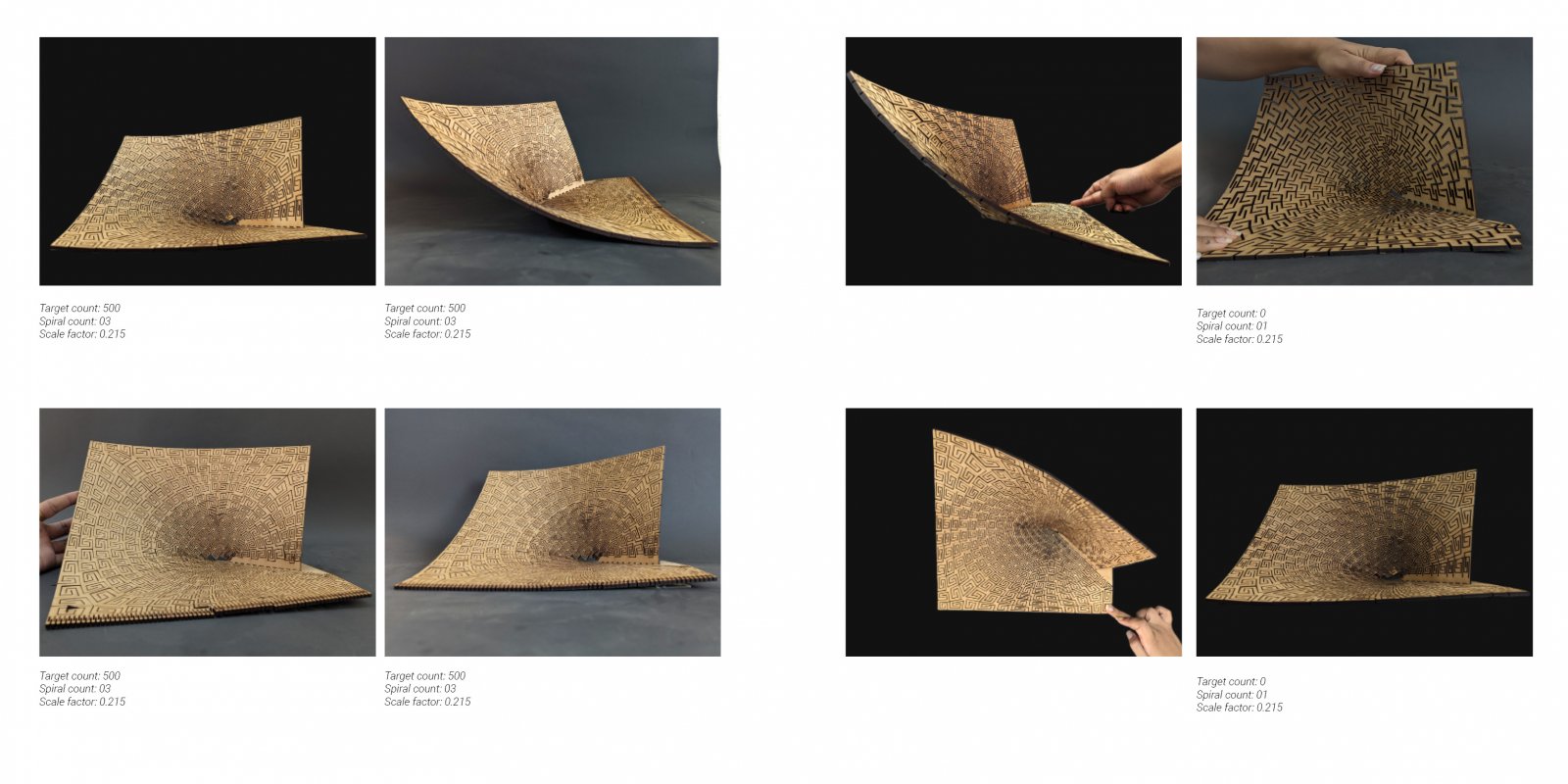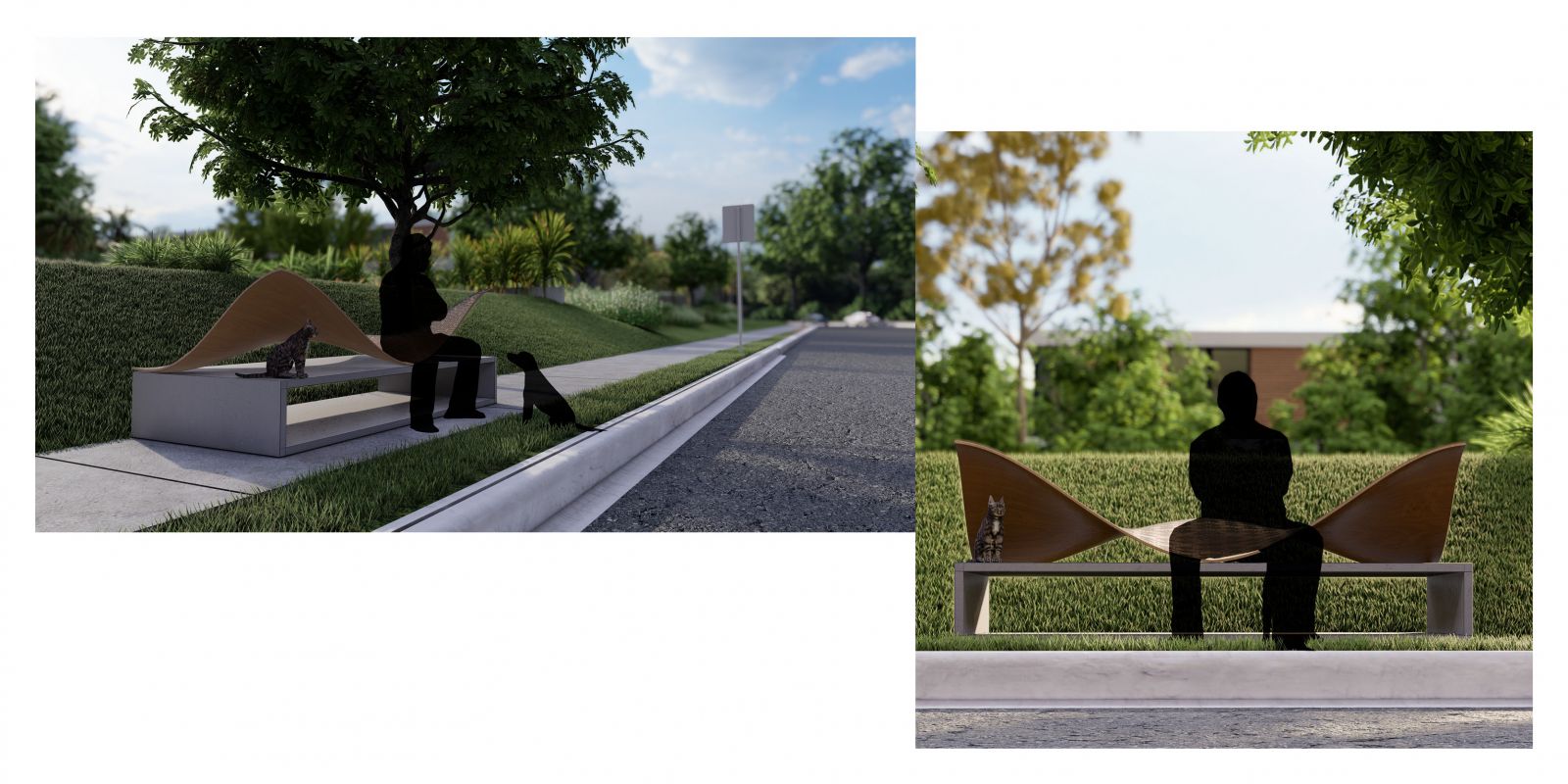Your browser is out-of-date!
For a richer surfing experience on our website, please update your browser. Update my browser now!
For a richer surfing experience on our website, please update your browser. Update my browser now!
This project explores the development of a multifunctional landscape module utilizing kerfing patterns on planar surfaces. These patterns enable bidirectional bending, offering the flexibility to create diverse modules across varying scales. The adaptable design allows for multiple functionalities, such as semi-covered spaces, benches, and walkways, achieved by manipulating geometry and anchor points. A flat-pack system is integral to the design, promoting easy transportation and on-site assembly while significantly reducing the carbon footprint associated with logistics. Adjustable anchor points enhance adaptability, allowing the modules to be tailored to specific contexts and needs. Wood is selected as the primary material for its sustainability, durability, and aesthetic qualities. To explore lightweight and eco-friendly alternatives, jute paper will be used in study models, offering insights into material performance and versatility. This project aims to create flexible, adaptable, and sustainable landscape elements that prioritize ecological responsibility and innovative functionality, enabling a range of applications in diverse environments.

